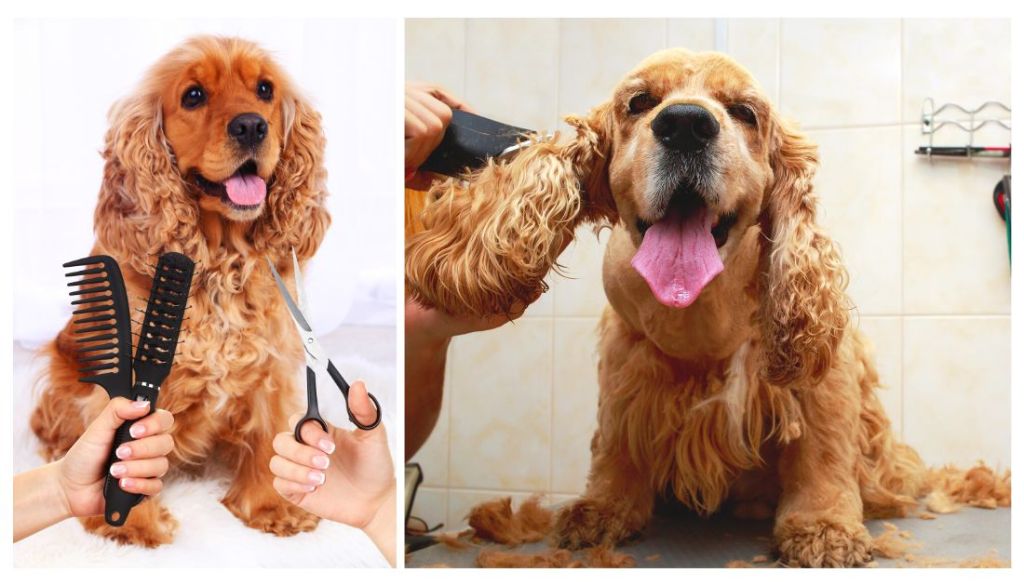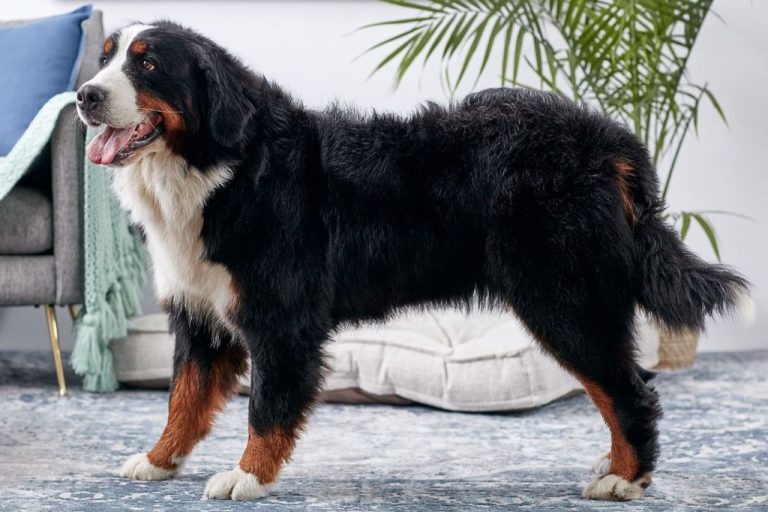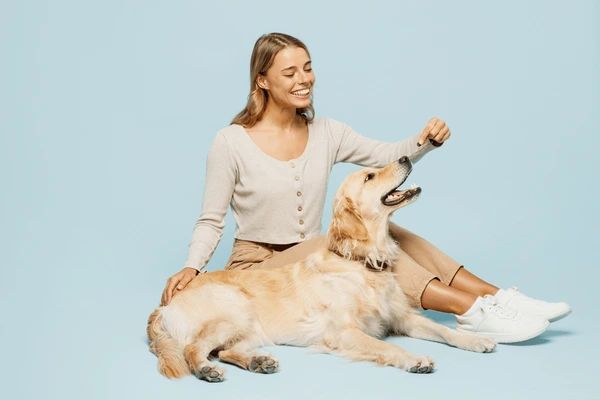Cocker Spaniel: Traits And Temperament Of A Classic Companion
The Cocker Spaniel is one of the most popular breeds of companion dog in the United States and originated as a hunting dog in England. Cocker Spaniels were originally bred to flush woodcocks, which is where the name “cocker” comes from. They were developed as the smaller version of the English Springer Spaniel and were popular hunting dogs, especially for woodcock hunting.
Today, the Cocker Spaniel is known as an affectionate family companion. According to the American Kennel Club, the Cocker Spaniel has been the most popular breed in the United States for 23 consecutive years. Their moderate size, friendly nature, gentle disposition, and intelligence have made them excellent family dogs. Cocker Spaniels thrive on human companionship and do well in households with children. They are lively, playful, and energetic.
Physical Traits
Cocker Spaniels are medium-sized dogs weighing between 25-35 pounds and standing 14-17 inches tall at shoulder height. They have a sturdy, compact body with a deep chest, sloping shoulders, straight, muscular forelegs, a well-sprung ribs, level topline, and strong hindquarters. Their compact size allows them to maneuver through cover or dense underbrush easily when hunting.
Cocker Spaniels have a beautiful coat of medium length that comes in solid colors like black, tan, chocolate, red, sable, and buff. They have feathering on their ears, legs, and belly. Their silky coats can be slightly wavy or flat, with some curling on the ears, chest, and hindquarters. Regular grooming and trimming is needed to prevent matting. Their expressive eyes are dark brown or hazel, and their long, lobular ears hang down gracefully. The sweet expression from their eyes and ears is a hallmark of the breed.
Overall, the Cocker Spaniel’s sturdy yet compact build allows for agility and endurance during hunting and field work. Their beautiful, silky coat can come in many colors and patterns. Their striking eyes and long, feathery ears give them an intelligent yet endearing expression.
Temperament
Cocker Spaniels are known for their gentle, friendly, and playful temperament. They make wonderful family companions as they are very good with children. Cockers are eager to please, affectionate, and energetic. They thrive when they can be close to their family and do not do well when left alone for long periods of time (American Kennel Club).
Cocker Spaniels were originally bred as hunting dogs so they retain a strong sporting instinct. However, they are not overly active or hyper and are content with a moderate amount of exercise. Their sweet nature and tendency to get along with other pets and dogs makes them ideal house pets (Dogtime). They aim to please their owners and are sensitive to corrections or harsh treatment. Positive reinforcement training is recommended to bring out the best in this intelligent breed.
Intelligence
Cocker Spaniels are known for their intelligence and trainability. This breed has a reputation for being able to learn tricks and commands relatively quickly compared to other breeds. Their hunting heritage means Cocker Spaniels are adept at understanding human cues and signals. According to the American Kennel Club’s rankings, Cocker Spaniels are the 20th smartest dog breed out of 138 total breeds analyzed for working and obedience intelligence.
Research indicates Cocker Spaniels’ IQ and ability to learn is on par with breeds like Collies, Poodles and Shetland Sheepdogs. While quite bright overall, Cocker Spaniels may be slightly less responsive to training compared to the absolute top intelligent breeds like Border Collies and Poodles. However, with proper positive reinforcement training methods, most Cocker Spaniels excel at mastering basic obedience, tricks, agility courses and more.
Cocker Spaniels tend to be people-oriented and eager to please their owners. This trait enables them to focus well during training sessions and retain what they’ve learned. Their energetic and active nature gives them enthusiasm for learning new things as mental stimulation. Overall, the Cocker Spaniel’s high intelligence combined with its loyalty produces an exceptionally trainable companion dog. Their smarts and versatility explain why they succeeded as hunting dogs and continue to thrive as family pets.
Exercise Needs
The Cocker Spaniel has moderate exercise requirements and enjoys daily walks and playtime. According to PitPat, healthy Cocker Spaniels aged between one and nine years old should get at least 70 minutes of exercise per day, split between walks. Since they were originally bred as hunting dogs, Cocker Spaniels enjoy having space to run around and play. A long walk or two every day will satisfy their exercise needs. However, Cocker Spaniels are adaptable dogs that can thrive in homes with or without a yard, as long as their people commit to providing daily exercise through walks, hikes, or trips to the dog park.
Grooming
Cocker spaniels require regular and thorough grooming to keep their coat healthy and prevent mats and tangles. Their long, silky coat is prone to tangling if not brushed thoroughly at least a few times per week. Daily brushing is ideal, especially during times when the dog is shedding. Many owners opt to keep the fur trimmed short for easier maintenance. Without regular grooming, the coat can become matted and dirty (https://www.rover.com/blog/cocker-spaniel-hair-cuts/).
In addition to coat care, cocker spaniels are prone to ear infections if their ears are not cleaned regularly. Their floppy ears trap moisture, dirt, and debris inside the ear canal, creating the perfect environment for infection. Gently wiping inside the ears weekly with a cotton ball and ear cleaning solution helps remove buildup and keep the ears healthy. Regular veterinary checks are also advised to monitor for any signs of infection. With proper grooming care, cocker spaniels can maintain clean, healthy coats and ears.

Health Issues
Cocker Spaniels are prone to certain health issues, many of which are common to the breed. Hip dysplasia is a genetic condition where the hip joint does not form properly, leading to arthritis and lameness (Purina). Eye issues like progressive retinal atrophy, glaucoma, and cataracts can also affect Cocker Spaniels (Walkin Pets). Their pendulous ears make them prone to ear infections. Regular cleaning and checking of the ears can help prevent infections.
With a lifespan of 10-14 years on average, senior Cocker Spaniels may face health issues like kidney disease, cancer, and heart conditions. Keeping up with vet checks, exercise, and a healthy diet can help maintain their health and quality of life. Though prone to certain conditions, many Cocker Spaniels live happily into their senior years with proper care and attention to their health needs.
Training
Cocker spaniels respond very well to positive reinforcement training methods. They are intelligent, eager to please, and quick learners, so reward-based training helps tap into their natural abilities. It’s important to use treats, praise, and play as rewards during training sessions. Avoid punishment or scolding, as this can be counterproductive with the sensitive cocker spaniel breed.
Early socialization is also key for training success. Exposing cocker spaniel puppies to a wide variety of sights, sounds, people, and other dogs from 8-16 weeks of age helps prevent shyness or reactivity later on. Short, fun training sessions during this time get puppies used to learning and following basic commands. Trainers recommend keeping early puppy sessions to just 5-10 minutes at a time.
Cocker spaniels do well with obedience training and can learn commands like sit, stay, come, down, heel, and leave it. Their eagerness to please makes them highly responsive to training that provides mental stimulation and activities. Consistency is important, so all family members should participate in training the same way.
While positive methods work best, some cockers can be stubborn at times. Patience and persistence are needed for continued progress in training. Setting firm boundaries, but avoiding anger, will yield the best results.
Living Conditions
Cocker Spaniels can do well in apartments if properly exercised according to Are Cocker Spaniels Good Apartment Dogs? Tips to Keep …. While they prefer homes with yards, Cocker Spaniels are adaptable dogs that can thrive in apartments as long as their exercise needs are met. As one Reddit user commented, “They’re really protective and attention lover. They can do well in an apartment as long as they get enough activity/walks” ([BREEDS] Are English Cocker Spaniels okay for apartments?). These dogs prefer being with their human families, so an apartment where the owner is home more often can be a good environment.
Daily walks and playtime are essential for a Cocker Spaniel in an apartment to get sufficient exercise and mental stimulation. Providing interactive toys and training activities can also help meet their needs when inside. As long as their energy needs are fulfilled, Cocker Spaniels can adapt to apartment living quite well.
Ideal Home
The energetic, playful nature of most Cocker Spaniels makes them especially well-suited for active families. They require substantial attention and playtime to thrive. According to [1] https://www.myfamilyvets.co.uk/cocker-spaniel-breed-guide, Cocker Spaniels love being around people and are never happier than when they’re part of the family. Their need for company means they don’t do well when frequently left alone. Households with family members who are outdoors often are a great match. Families with children should supervise interactions, as Cockers may be prone to nipping during play. Working Cockers especially need plenty of exercise and mental stimulation [2] https://postcardsbyhannah.com/2020/11/23/the-realities-of-owning-a-cocker-spaniel. A backyard gives them space to run around, but walking and playtime are still required. Show Cockers tend to be calmer than Working Cockers but still need daily activity. Overall, active, attentive families are ideal homes for this loving breed.






